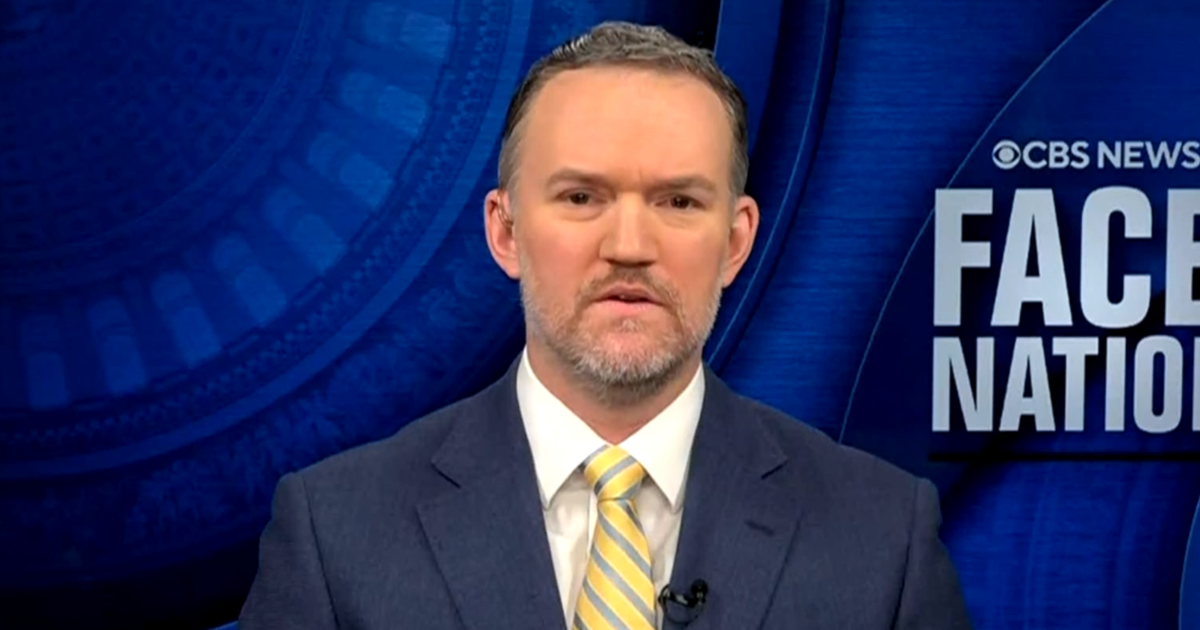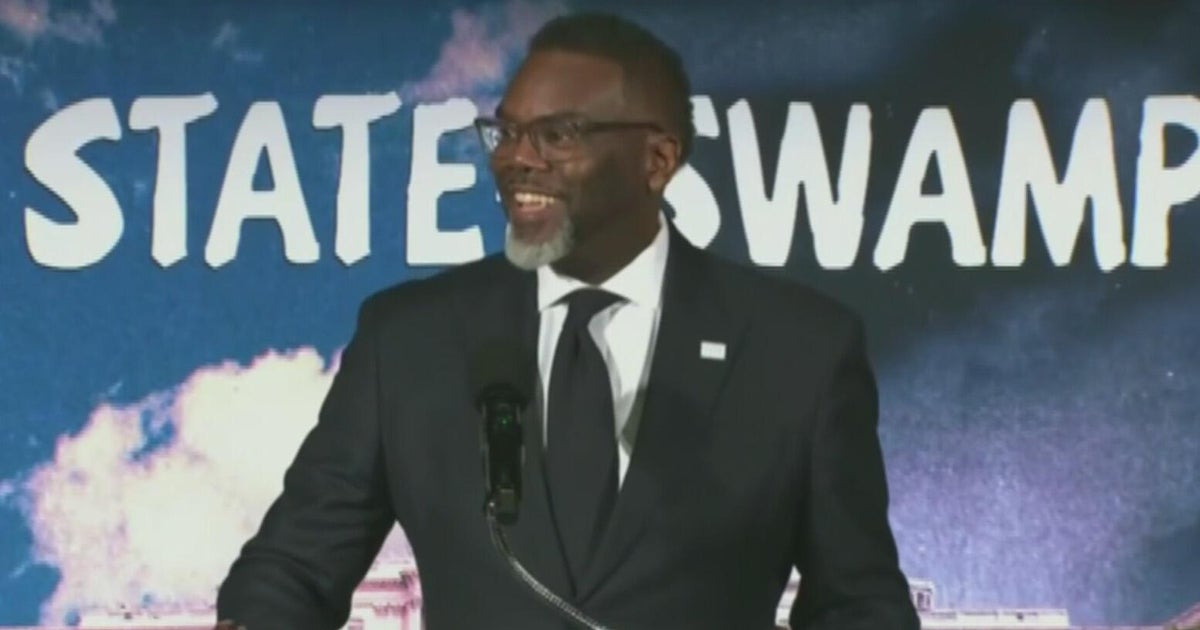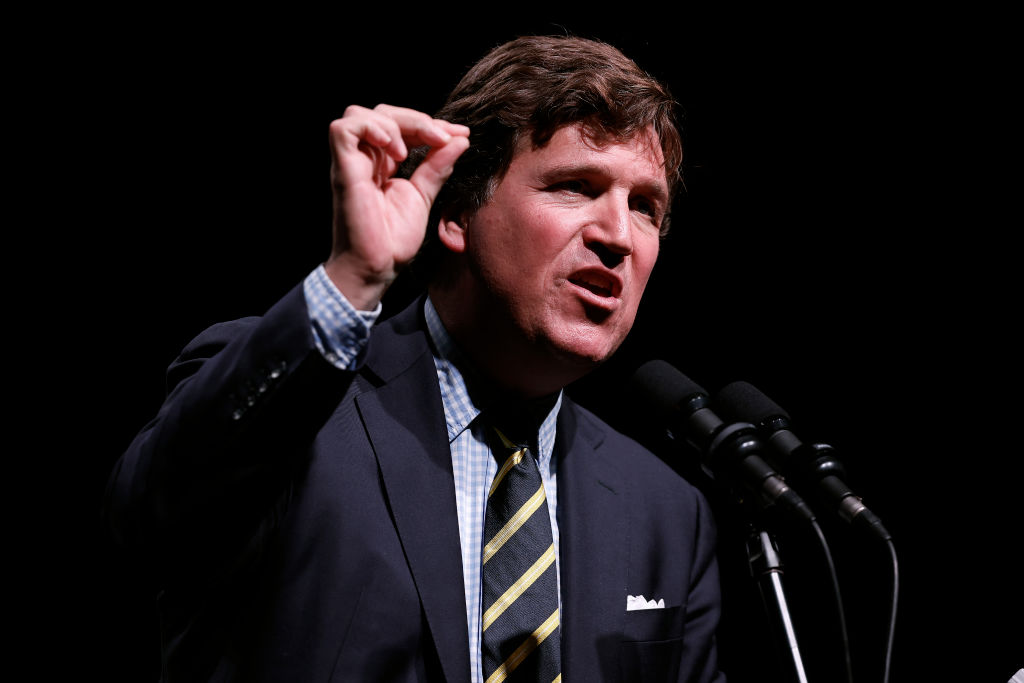Transcript: Mark Meadows on "Face the Nation," September 27, 2020
The following is a transcript of an interview with White House chief of staff Mark Meadows that aired Sunday, September 27, 2020, on "Face the Nation."
MARGARET BRENNAN: We begin this morning with White House chief of staff Mark Meadows, who joins us from Washington. Good morning to you.
WHITE HOUSE CHIEF OF STAFF MARK MEADOWS: Good morning. Great to be with you.
MARGARET BRENNAN: Have Republican leaders assured you they can deliver on that timeline?
MEADOWS: Well, obviously, we've been in conversations with Leader McConnell, with Chairman Graham, he is going to put forth a pretty aggressive schedule for hearings and markups that we believe will happen in the middle part of October. And if all goes well, then certainly a- a vote on the floor sometime before the election. But that's going to be up to Leader McConnell and the team and making sure that all the senators are well informed of the judge's credentials, which are impeccable. But we're- we're optimistic that we'll be prepared. We'll start delivering the information to the senators tomorrow and then we'll be on Capitol Hill as early as Tuesday.
MARGARET BRENNAN: As early as Tuesday. Sir, when I look at some of the data right now in terms of where the country is with the coronavirus, there are four US states, including Wisconsin, that have had record one-day increases. We're going into cold weather. We're headed towards Election Day. Where's the infection rate going to be?
MEADOWS: Well, it's hard to tell where the infection rate is going to be. But what I can tell you is the progress with vaccines has just been remarkable. We've had a- a number of conversations with not only the FDA and those that are involved in making sure that any vaccine is- is fully vetted and safe. But additionally, some of the clinical trials are in the very late stages of development.
MARGARET BRENNAN: Right.
MEADOWS: So we're optimistic that what we'll be able to do is hopefully start taking sign up for those vaccines. And so even as we face this unknown virus that came to us from China, we're trying to make sure that we're prepared to do all we can to mitigate the- the difficult circumstances that a lot of Americans are facing.
MARGARET BRENNAN: But the predictions are not that you could have a vaccine by Election Day, and it is relevant in terms of the infection rate because people have to have confidence to be able to go out and go to the polls. If you look at data from AEI, hospitalizations are no longer declining. In fact, they may be increasing. It doesn't look like this is under control.
MEADOWS: Well, the hospitalization rate is- if you'll look at that data, whether it's from AEI or anywhere else, the hospitalization rate actually has been a- a good news story over the last several months. To suggest that it is spiking up is not accurate.
MARGARET BRENNAN: I said increasing.
MEADOWS: But I can- but- but- but I can tell you that, well, you know, one or two increases in certain states, certainly we're going to continue to fight this as those embers pop up in- in areas. But we're having ongoing discussions with our governors in mitigation risk. There will be an announcement on Monday as it looks at additional testing that the federal government will be providing to all the governors. And so as the president makes that announcement, I think that will be an encouragement so that everybody can go back to school or back to work and feel like they can do that in a safe manner.
MARGARET BRENNAN: You talked about a vaccine. The FDA is supposed to be issuing these stricter guidelines. We've been told to expect that.
MEADOWS: Right.
MARGARET BRENNAN: But then you reportedly called the FDA commissioner and really challenged him on trying to justify doing that.
MEADOWS: Well--
MARGARET BRENNAN: You're not a doctor. Why insert yourself politically into this which--
MEADOWS: Well--
MARGARET BRENNAN: --which feeds these concerns about interference?
MEADOWS: So, MARGARET, obviously your producer didn't do a good job of informing you of exactly what I've done. What we actually have is new guidance that's coming out. My question is, why would that new guidance come out after we've already spent 30 billion dollars in doing that? And my challenge to the FDA is just make sure it's based on science- science and real numbers. And so as we look at that, we're making very good progress--
MARGARET BRENNAN: Why would the FDA not be basing it on science and real numbers? Why would you think that they're doing that?
MEADOWS: Well, why would you think that we would need new guidance after we've developed vaccines and drugs for- for decades and then all of a sudden we're--
MARGARET BRENNAN: The FDA said they were going to.
MEADOWS: --going to change something in the- in the last two weeks? The question is why, MARGARET? I mean, why would we do that? I'd also look at this. And as we got into that discussion, here's one of the great things that we're looking at. If we're looking at tens of thousands of people that are in these clinical trials, we want to make sure that it's safe. The Phase 1, Phase 2 indicated that- that these vaccines that are going through are safe. We're trying to make sure that the guidance we give is not a- a inhibitor to getting things out fast--
MARGARET BRENNAN: Right.
MEADOWS: --but it also doesn't detract from it. So I'm optimistic that that guidance will come out based on good science- science and ultimately our FDA guidelines to make sure that all people who take a vaccine can do that with some kind of assurance that the process is meted out properly.
MARGARET BRENNAN: You were on another show on this network earlier this week, and you raised questions about the competence of the current FBI director Chris Wray after he testified that there was no evidence of voter fraud in a major election by mail or otherwise. Is the president confident in Director Wray's leadership?
MEADOWS: Well, I think my- my reference to that particular point said that he couldn't find emails at the FBI. And so to opine on whether we have wide scale fraud or not, is- is not him that's with boots on the ground. You know, and I know that there's actually an investigation that the Department of Justice has initiated--
MARGARET BRENNAN: Right.
MEADOWS: --with some ballots being thrown at a wastepaper basket. What we want to make sure of is that every vote counts.
MARGARET BRENNAN: Nine ballots in Pennsylvania.
MEADOWS: But- but- nine ballots, but that's what we found. And so we need to make sure that we investigate it. But it's not just the nine ballots in Pennsylvania. It's duplicate ballots in other states.
MARGARET BRENNAN: But--
MEADOWS: And so to suggest that- that there is a process that is full of integrity is- is trying to make a verdict before you've actually heard the case. And that's my- my problem with Director Wray. They need to investigate it and make sure that- that the voting populace makes sure that their--
MARGARET BRENNAN: Are you confident in him?
MEADOWS: --vote counts and no one else's does.
MARGARET BRENNAN: Is the president confident in him?
MEADOWS: I beg your pardon?
MARGARET BRENNAN: Is the president confident in him?
MEADOWS: Well, I mean, as we look at this, we want to make sure he's doing his job. There are different degrees of confidence in different cabinet members. And certainly he's still there. The- the minute that the president loses confidence in any of his cabinet members, he'll- they serve at his pleasure, and he will certainly look at replacing them.
MARGARET BRENNAN: CBS estimates that at least 80 million Americans are going to vote by mail. That's what they plan to do. But the president said last night the whole ballot scam is going to cause a lot of problems for this country.
MEADOWS: Yeah.
MARGARET BRENNAN: Why is he publicly undermining confidence in that?
MEADOWS: Well, I don't know that he's publicly undermining confidence as much as he's stating the facts. We've got states that are--
MARGARET BRENNAN: He said it's a scam.
MEADOWS: Well we've got states that actually are doing things that you would qualify as a scam when you start to look at allowing mail-in ballots to come in seven, nine days after November 3rd, changing the laws through judges that actually are not legislators. I- I think that that's a real problem. And so you can call it what you will, but what you can call it is unusual and unique. And- and we need to make sure that what we do is- is protect the ballot process--
MARGARET BRENNAN: Yeah.
MEADOWS: --to make sure that we're not creating a situation that is ripe with fraud. And he's right to- to highlight it. The very fact that we're talking about it this morning--
MARGARET BRENNAN: Right.
MEADOWS: --is a good thing that hopefully all states will look at making sure that they make sure that--
MARGARET BRENNAN: Yes.
MEADOWS: --that ballot is sacred.
MARGARET BRENNAN: Yes. And it is up to the states to determine those. We'll talk about that ahead on the program. Thank you, Chief.
MEADOWS: Sure.



